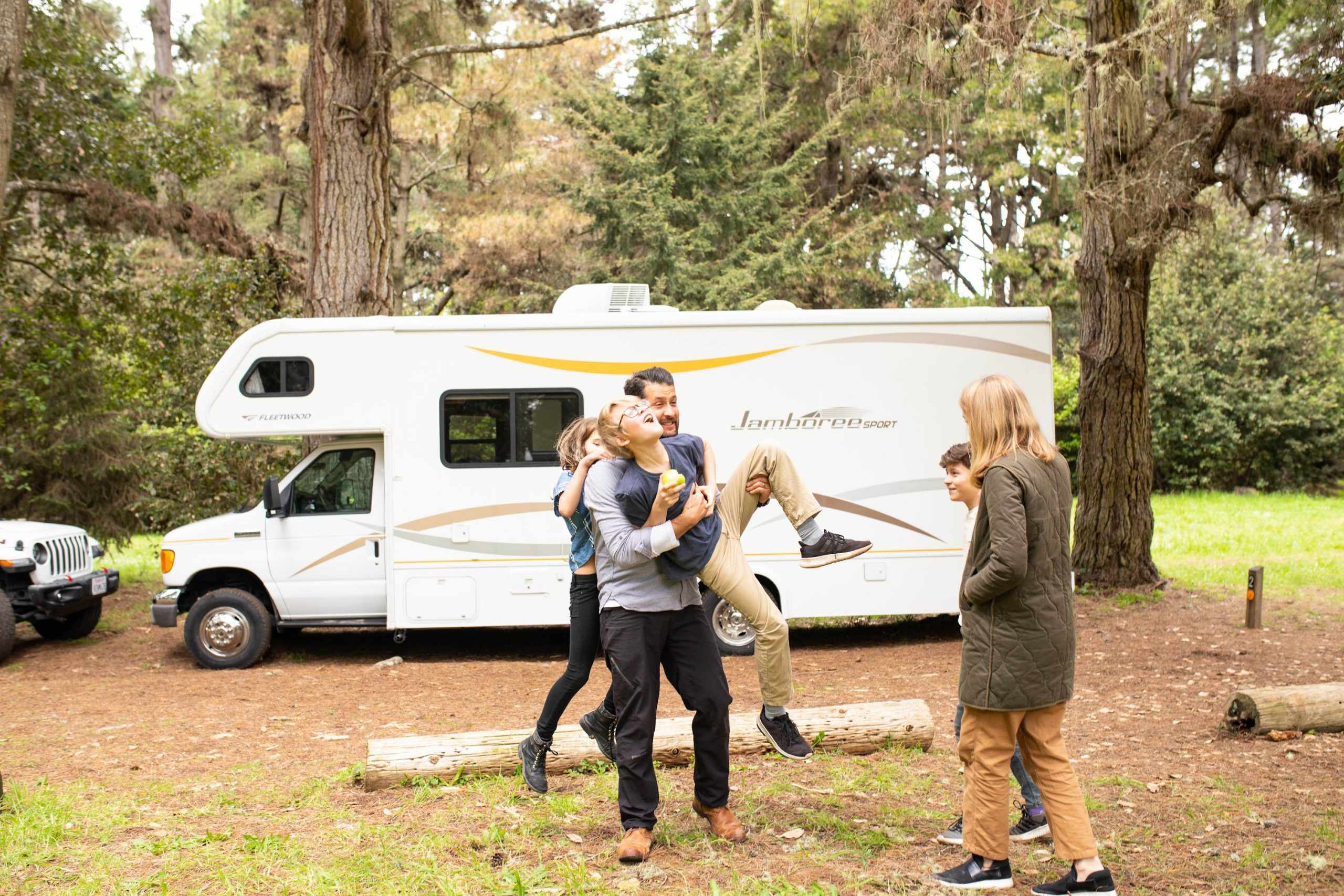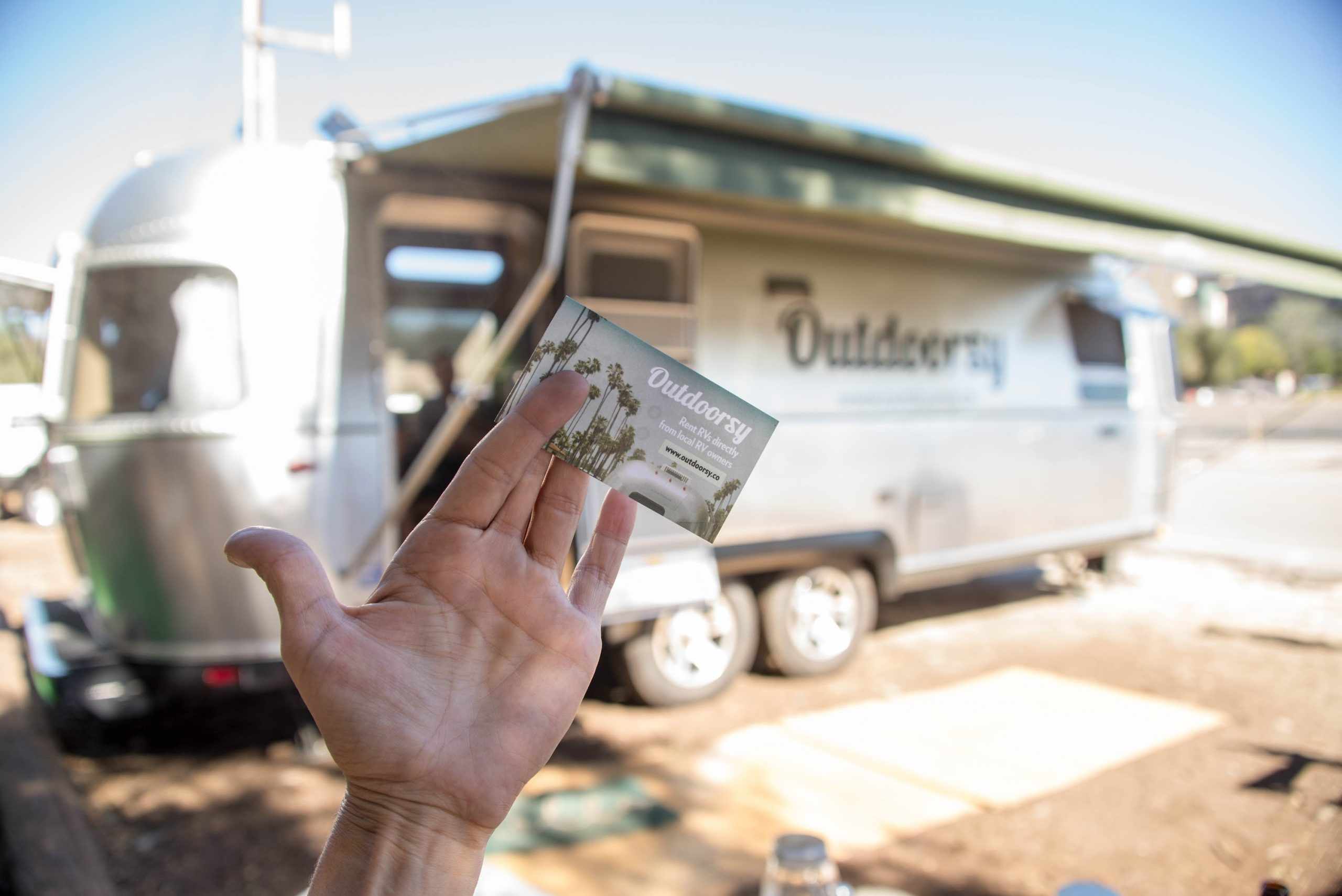Everyone knows about the amazing hiking trails at Yosemite, but have you ever thought about Yosemite biking? That’s right, many people actually use bicycles to get around the park, and honestly, it’s an excellent option that we highly recommend.
In this article we will discuss everything you need to know about Yosemite biking so you can enjoy the unique experience of cycling through this gorgeous place.
RVs For Rent Near You
Why Bike Yosemite?
Wondering why you should bike Yosemite when you have a perfectly good car to get around in? Lots of reasons!
For one thing, the park can become incredibly crowded and difficult to navigate in a car. Riding a bike allows you to easily bypass traffic jams and park absolutely anywhere.
We also appreciate that Yosemite biking allows you to breathe the fresh air the park has to offer and take in all the sights and sounds along the way. There’s something so immersive about riding a bike through the trees and meadows—something you can’t replicate even by driving with the windows down—and the ability to quickly and easily stop and take photos or take in the view wherever you see fit is priceless.

The Best Yosemite Biking Trails and Paths
Where can you experience Yosemite biking? Unfortunately, like most national parks, Yosemite doesn’t allow bikes on the majority of their hiking trails. That said, there is a lovely multi-use paved trail you can ride on, as well as some wonderful roads that can be used by you and your fellow bicyclists.
Yosemite Valley Loop Trail
The Yosemite Valley Loop Trail is the quintessential biking experience in the park, offering a leisurely 11.5-mile loop that showcases some of Yosemite’s most iconic landmarks.
Beginning at the Lower Yosemite Fall area and working their way throughout the valley, riders will enjoy views of towering granite cliffs and rock formations, including El Capitan and Half Dome. The trail passes by meadows dotted with wildflowers in the spring and offers numerous opportunities to stop and admire famous landmarks such as Bridalveil Falls.
With relatively flat terrain and stunning scenery at every turn, this trail is perfect for cyclists of all ages and abilities.
Glacier Point Road
For cyclists seeking a more challenging ride with unparalleled panoramic views, Glacier Point Road delivers an unforgettable experience.
This 16-mile out-and-back route begins at Yosemite Valley, at the parking lot at Wawona Road and Glacier Point Road. It climbs steadily through pine forests and rocky outcrops to reach the iconic Glacier Point overlook. Along the way, riders are treated to sweeping vistas of Yosemite Valley, Half Dome, and the High Sierra beyond.
While the ascent can be strenuous, the breathtaking views from Glacier Point make it well worth the effort. Cyclists should be prepared for variable weather conditions, as temperatures can fluctuate significantly at higher elevations.
Tioga Road
During the summer months, cyclists have the opportunity to explore one of the most scenic alpine highways in the country. Tioga Road traverses the high country of Yosemite National Park, winding through alpine meadows, past pristine lakes, and beneath towering granite peaks.
While the entire length of Tioga Road spans over 60 miles, cyclists can choose from a variety of shorter routes and scenic viewpoints to tailor their ride to their preferences. Highlights along the route include Tenaya Lake, Olmsted Point, and the Tuolumne Meadows, each offering unique opportunities to immerse oneself in Yosemite’s pristine wilderness.
Depending on which section of road you choose to bike, your ride could be easy or incredibly strenuous, so be sure to do your research and choose a section that best suits your abilities.
Yosemite’s “Bikes Only” Days
Both Glacier Point Road and Tioga Road close for the winter months, and can only be biked during the warmer months after they have been plowed.
Usually, this means biking alongside vehicle traffic. That said, at the beginning of spring (usually in April or May), Glacier Point Road and Tioga Road will often open to bicycles only for a few days before opening to other vehicles.
Biking the roads during “bikes only” days is an incredible experience, as it allows bikers to take in the sights and sounds without the interruptions and worry caused by passing vehicles.
Dates change yearly, so watch the NPS website for exact details.
The Logistics of Yosemite Biking
Clearly, Yosemite biking is an excellent way to see the park from a unique perspective and create an extra memorable and immersive experience. That said, if you are traveling from out of state, bringing a bike along is not always possible, making the logistics of Yosemite biking a bit tricky for some.
Fortunately, rental bikes are available and are a great option if you can’t bring a bike of your own. There is also an in-park bike-share program during the late spring and summer months.
Other Things to Know about Yosemite Biking:
- Because many of the biking paths in Yosemite are also roads, you will want to be prepared to share the road.
- Legally, all children under 18 years of age must wear a helmet. Adults should also wear a helmet for safety.
- The speed limit is 15 mph on all bike paths.
- Off-trail riding and mountain biking are not allowed in Yosemite National Park.
Where to Stay after Your Yosemite Biking Experience
Obviously, you will need a comfortable place to stay after a long day of pedaling around Yosemite National Park. Fortunately, Outdoorsy Yosemite is here for you! This campground is packed full of amenities, meaning you will be 100% comfortable camping here, and the location right outside the national park really can’t be beaten.
You can even have one of these RVs delivered and set up for you as your Yosemite biking basecamp.








